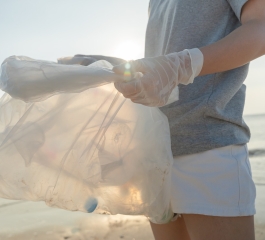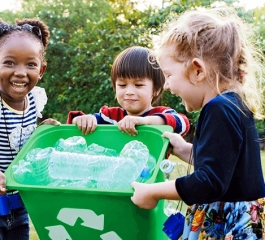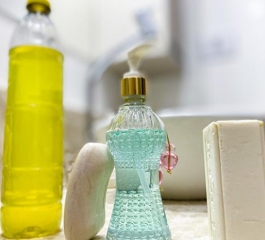Do you want to know more about glass and understand what makes it a recyclable material? Then know that this is the ideal article for you. Check it out!!
But what is glass anyway?
Glass is a solid, transparent material, usually produced from a mixture of sand, soda, lime and other minerals.
Its unique properties, such as transparency, durability and resistance to chemicals, make it widely used in the manufacture of bottles, glasses, windows, decorative objects and in various industrial applications.
Its recycling is highly efficient and sustainable, thus allowing it to be reused endlessly in the production of new glass products.
Is glass recyclable?
Contrary to popular belief, yes, not all types of glass are completely recyclable.
This material can go through a recycling process infinite times without losing its properties or quality.
The glass recycling process begins with the collection of the material, followed by the separation by colors (green, brown and transparent) and the removal of impurities.
The glass is then melted at high temperatures, enabling the creation of new packaging or glass products.
Glass recycling is a sustainable practice that not only helps save natural resources, but also reduces the amount of solid waste and minimizes the environmental impact.
Therefore, in order to contribute to this practice, it is important to dispose of glass containers correctly at selective collection points or in specific places for recycling.
Which types of glass can we recycle and which not?
It is important to emphasize that glass is highly recyclable and can be completely used in the recycling process.
A ton of broken glass generates a ton of new glass, which avoids the extraction of natural resources and reduces gas emissions into the atmosphere.
The incorporation of broken glass in manufacturing also reduces CO2 emissions and energy consumption.
In this way, glass recycling plays an essential role in preserving the environment and promoting sustainability.
— Glass that we can recycle:
- Plates, cups and bowls;
- Common glass fragments;
- Flat glass (window, door);
- Bottle (medicines and/or perfume);
- Pots used for food storage;
- Beverage bottles (milk, juices, beers, soft drinks, etc);
In addition, it is extremely important to mention that glass is highly recyclable, and to ensure proper disposal, it is important that it is clean and without lids.
Knowing the types of recyclable glass enables correct separation, contributing to the recycling process. Therefore, it is essential to identify and avoid non-recyclable glass models.
— Non-recyclable glass:
As mentioned earlier, not all types of glass are recyclable due to the materials in their composition.
Some do not provide satisfactory results in the recycling process, mainly due to special pigments that prevent the recycling of the shards.
It is important to be aware of these limitations when disposing of glass in order to contribute to the efficiency of the recycling process and promote more sustainable practices.
Check the list of non-recyclable glass below:
- Ampoules (medicines);
- Tempered glass;
- Lamps;
- Porcelain;
- Mirrors;
- Refractories – Pyrex;
- Microwave lid;
- Crystals;
How to dispose of glass correctly?
In order to correctly dispose of glass, it is necessary to take into account some factors and issues.
When performing the process, make sure that the material in question is clean, separated by color (green, brown, transparent) and free of lids and seals.
In addition, it is extremely important to use specific selective collection points for glass, avoiding mixing it with other materials and being careful in handling to avoid accidents.
By adopting sustainable practices, we contribute to the efficient recycling of glass and the preservation of the environment.
Conclusion
In summary, glass is highly recyclable and its recycling contributes to the preservation of the environment. It is important to separate the bottles by color and dispose of them at specific selective collection points.
Not all types of glass are recyclable, and it is essential to avoid improper disposal of non-recyclable glass.
As such, adopting sustainable practices in glass recycling is critical to protecting the environment and ensuring the efficient reuse of this valuable material.



